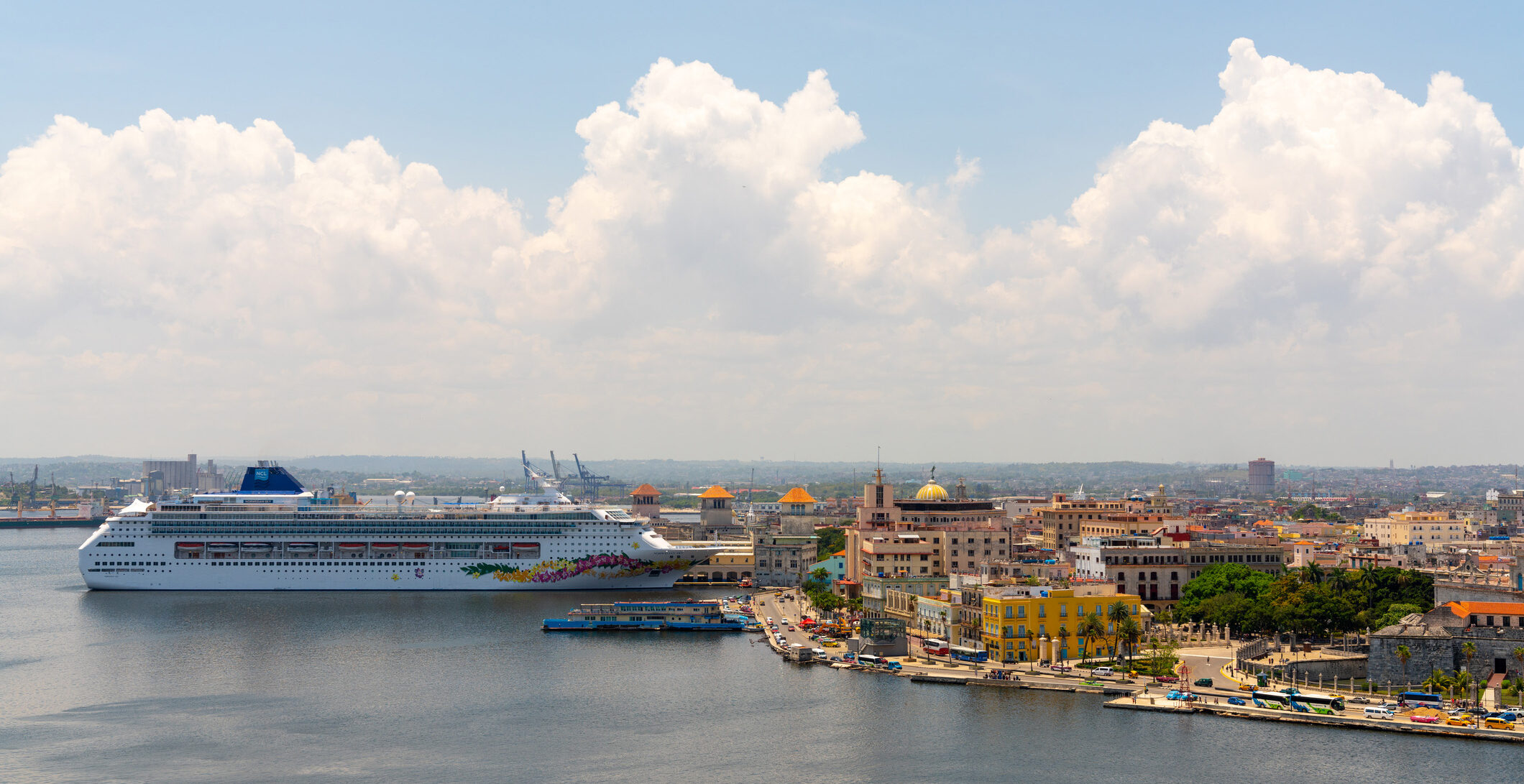US-based cruise lines hit by government decision
Cuba no longer on US cruise itineraries
2019, July 1: On Tuesday June 4 the US Department of the Treasury issued a revision of its travel regulations to Cuba and before the end of that day, major cruise ship lines had announced cancellations of calls to that destination.
The new regulations, effective immediately, banned cruise ships from visiting Cuban ports and simultaneously put an end to personal travel to that country for neither educational nor cultural visits (unless they were booked prior to June 5). Immediately, Royal Caribbean, Carnival and Norwegian declared their intention to cancel scheduled calls. Passengers who were already on cruises to Cuba got told that they would not be going there.
Reports were that passengers who were travelling specifically to visit and enjoy Cuba were communicating their anger vocally and via social media.
“We are aware of the announcement and are analysing the details to understand the impact on our itineraries. In the meantime, we are adjusting the itineraries of our June 5 and June 6 sailings, which will no longer stop in Cuba. We are communicating with our guests about those changes. We will provide other updates as needed,” a Royal Caribbean source stated.
In a statement, Carnival said: “We are working as quickly as possible to secure alternative itineraries for the remainder of our Cuba voyages and expect to have information for sailings further out in the next 2-3 days. In the meantime, please check back on our website for further updates.”
Norwegian Cruise Line expressed gratitude to their guests and travel partners for “patience as we navigate this unexpected, last-minute change.”
Sought after
Cuba had become a most sought-after cruise destination over recent years, giving cruise lines fresh bait for marketing. Having been made inaccessible to American tourists by US sanctions against the communist regime for more than half a century, Cuba now offered something new and culturally exciting to both regulars and rookie cruisers.

Bookings for trips to its cruise ports had been increasing at a rapid rate since President Barack Obama’s March 2016 initiatives to normalise relations between the two countries. Official figures show that Americans arriving as cruise tourists in the first four months of 2019 totalled 142,721 outstripped long-stay tourist visits, barely three years since President Obama’s official visit to that country.
The Cruise Lines International Association (CLIA) said that almost 800,000 bookings (scheduled and in progress) were affected by these US regulations.
Venezuela
The official statement from the US Treasury and the words attributed to Treasury Secretary Steven Mnuchin give the impression that this US action was a reaction to what it regards as Cuba’s empathy towards the Venezuelan government, with which the US currently has strained relations.
“Cuba continues to play a destabilizing role in the Western Hemisphere, providing a communist foothold in the region and propping up US adversaries in places like Venezuela and Nicaragua by fomenting instability, undermining the rule of law, and suppressing democratic processes,” said Treasury Secretary Steven Mnuchin. “This Administration has made a strategic decision to reverse the loosening of sanctions and other restrictions on the Cuban regime. These actions will help to keep US dollars out of the hands of Cuban military, intelligence and security services.”
“These actions mark a continued commitment towards implementing the National Security Presidential Memorandum signed by the President on June 16, 2017 titled “Strengthening the Policy of the United States Toward Cuba.” The policies continue to work to channel economic activities away from the Cuban military, intelligence, and security services. The Treasury changes will take effect on June 5, 2019 when the regulations are published in the Federal Register.”
A tweet believed from the US Treasury Department (@USTreasury) was quite explicit: Treasury and Commerce implement changes to Cuba sanctions rules to keep US dollars out of the hands of Cuban military, intelligence, and security services.
Strained relationships between the US and Venezuela appear likely to continue for some time, with clear negative implications for Cuba’s tourism revenues; but also the bottom line of balance sheets of entities across the industry.
Cuba was big cruise business at the right time. However, as some (residents in Key West and increasingly across the Caribbean) argue, this move by the US Treasury Department may well be in Cuba’s best long-term interests. Given the documented experiences of small states that accommodate cruise ships in their main cities and towns, mega-cruiseships turning loose hundreds of thousands of noisy, boisterous, low-spending tourists every year to despoil and litter beautiful beaches may ultimately not be in the best interest of Cuba and Cubans. []





